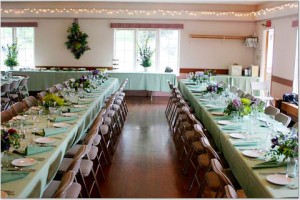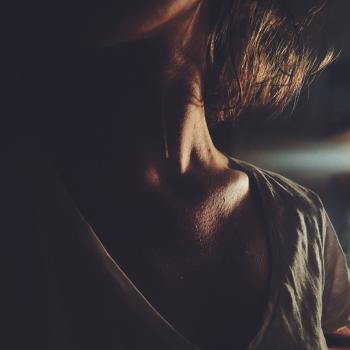 In the first part of my post yesterday, I lamented our contemporary lack of risk, our incuriosity, our resistance to extend ourselves outside the ideological boundaries we have constructed for ourselves. And at the bottom of all our own self-congratulatory opinions and social purity tests (Obama, the Koch Brothers, Pop Tarts) is our own fear.
In the first part of my post yesterday, I lamented our contemporary lack of risk, our incuriosity, our resistance to extend ourselves outside the ideological boundaries we have constructed for ourselves. And at the bottom of all our own self-congratulatory opinions and social purity tests (Obama, the Koch Brothers, Pop Tarts) is our own fear.
That’s bad for everyone all around, I think—and I wish my secular-minded friends, who are worried only about justice here on earth, not the beyond, could realize that by demonizing the Other (thank you, Dr. Rebecca Mark, my American Life in American Literature professor, Spring 1990) they are not living up to their own values.
Such deliberate blindness is especially bad for Christians, because we are to be about the business of witnessing Christ throughout the world. And the best way that is done is not by talking, talking, talking, but simply by being a closer and closer reflection of the divine image, and doing the work a suffering world needs.
“They’ll know that we are Christians by our love,” goes the verse of the hymn—well, fat chance these days, in my experience. We are in need not of evangelists but a generation of servants and saints.
And fools: The Fool for Christ, in Orthodox tradition, is the saint who by his very ridiculousness, his risk, communicates the love of Christ in unexpected ways—by standing on a pillar for years like St. Simeon Stylites, or living as a homeless wanderer, wearing her husband’s army uniform, like St. Xenia of Petersburg.
This is why I continue to love the image of my father moving at a crawl down Grand Avenue on the bladeless riding mower—it’s a concrete embodiment of joy amid a dying world. “All the way to heaven is heaven,” Catholic Worker founder Dorothy Day liked to quote Catherine of Sienna (a very Orthodox understanding, by the way)—and my father’s journey was a picture of salvation.
And there’s a story about my mother I want to tell, too, that was also a picture of Christ, shining into the world: One Christmas, after my father had died and she was both suffused with repressed anger and deeply depressed, the twenty-something son of my parents’ friends paid a visit to my sisters and brothers, and ended up recounting for all of us the story of his involvement in a local cult, from which he had only recently broken away. (If you’ve seen Philip Seymour Hoffman in The Master, you can get the idea, though this was the late seventies instead.)
This young man was broken—already an alcoholic and probably on drugs. Nothing was to be well with him, then or ever. He sat there in our banal family room, in front of our Zenith television, beside the twinkling tree and my Hasbro toys, our middle-class complacency, and described openly the environment of control that the leader had enticed him into living: the mind games, the assignments of which group members would be required to have sex with one another.
I was nine, had just discovered about sex: the family friend’s revelations were embarrassing, shameful, bewildering. It should not have been taking place with me around. And yet just then, though, I remember noticing not him, but my mother. My mother, who had a sense of easily ruffled propriety, and who would ordinarily have had no problem pronouncing judgment on her own children, was sitting on the fireplace hearth, listening to him openly, creating a space for him—in a year in which she had space for almost no one else.
She was, in the bravest, truest sense, a mother in that moment: More Spacious than the Heavens, an honorific given to Mary. What’s neglected is that we who are believers are to become like Mary, as well.
And that is to take nothing away from the Law and the Prophets—don’t misunderstand me—I believe in the whole institutional edifice—but I am merely saying that there must be love, we are love, we are the fissures in the cosmos through which God’s love shines its radiance.
“We cannot love God unless we love each other,” Dorothy Day said in her memoir The Long Loneliness. “We know Him in the breaking of bread, and we know each other in the breaking of bread, and we are not alone anymore. Heaven is a banquet, and life is a banquet, too, even with a crust, when there is companionship.”
It is our responsibility, our joy. Let us pour ourselves out into the world.
A native of Yazoo City, Mississippi, Caroline Langston is a convert to the Eastern Orthodox Church. She is a widely published writer and essayist, a winner of the Pushcart Prize, and a commentator for NPR’s “All Things Considered.”











